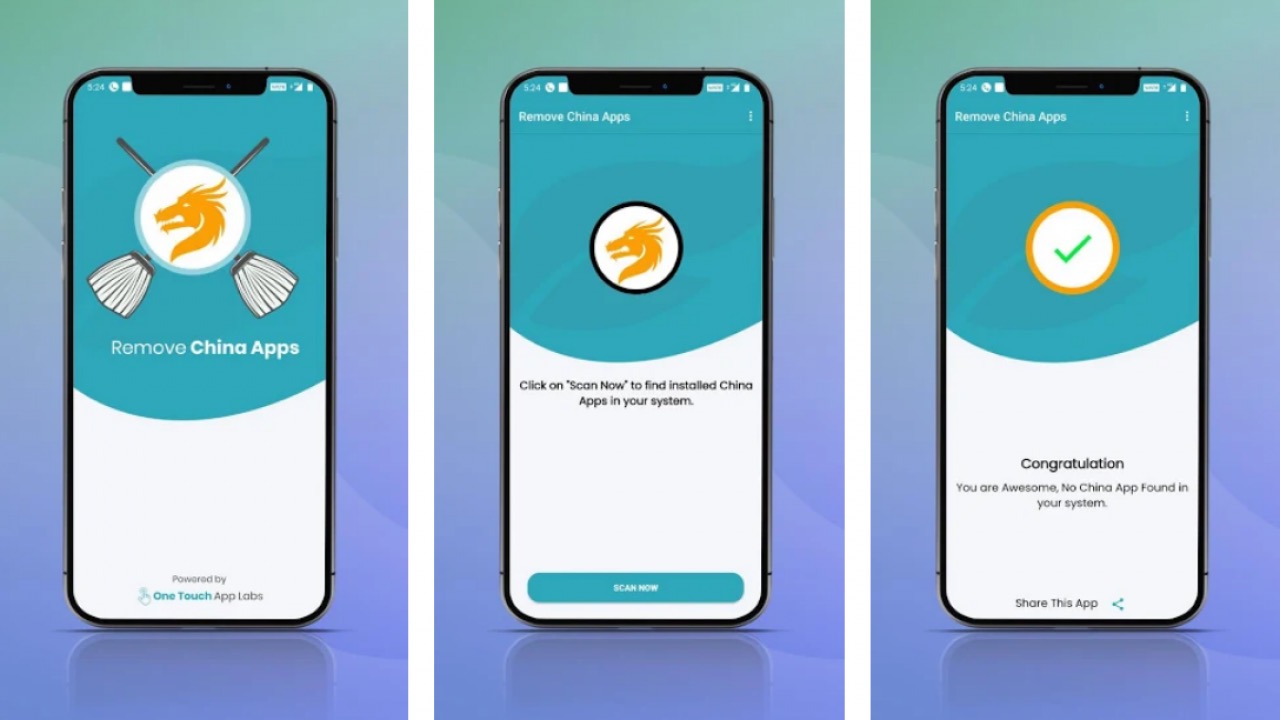After Mitron, Google pulls the plug on 'Remove China Apps' from Play Store
Second in as many days

A few hours after removing the Mitron App from Play Store for violating its spam and minimum functionality policy, Google has cracked down on India's top-trending 'Remove China Apps' mobile app. Google cited a violation of its 'Deceptive Behaviour Policy' as a reason for its removal.
The app, developed by a Jaipur-based start-up OneTouchAppLabs, the Remove China app has been downloaded more than 5 million times since May. Originally created as an educational tool, the app used its ability to identify the country of origin of apps on Play Store to help users detect and delete apps developed by Chinese firms.
- Why Boycott China is not as easy as it sounds on Twitter
- Google cracks down on Mitron app popular in India - here's why
- Tiktok alternative Mitron is apparently a rebadged Pakistani app
Statement from Google VP
“Earlier this week, we removed a video app for a number of technical policy violations. We have an established process of working with developers to help them fix issues and resubmit their apps. We’ve given this developer some guidance and once they’ve addressed the issue the app can go back up on Play,” Sameer Samat, Vice President, Android and Google Play, said in a prepared statement.
“This is a longstanding rule designed to ensure a healthy, competitive environment where developers can succeed based upon design and innovation. When apps are allowed to specifically target other apps, it can lead to behavior that we believe is not in the best interest of our community of developers and consumers. We’ve enforced this policy against other apps in many countries consistently in the past - just as we did here,” Samat said.
A report published on TechCrunch says the app was removed under Play Store's deceptive behaviour policy which states that developers cannot make changes to a user's device settings or features outside of the app without the user's knowledge and consent. It can also not encourage or incentivise users into removing or disabling third-party apps on their devices.
The app gained popularity after several influencers in India mooted a boycott of all things Chinese amidst growing anti-China sentiment over fresh Sino-Indian tensions on a lingering border dispute. Taking to Twitter, the creator of this app shared a message to all those who downloaded it and offered a tip on how to find the country where any app on Play Store is developed.
Dear Friends,Google has suspended our #RemoveChinaApps from google play store.Thank you all for your support in past 2 weeks."You Are Awesome"TIPIts easy to find the origin of any app by searching on googleby typing
origin countryStay Tuned !! Stay Safe!!June 2, 2020
Chinese smartphones rule the roost
Given that India's booming smartphone market, the second largest in the world in terms of usage and production, is replete with Chinese brands is being pointed out as a reality check by economists and some members of the political parties opposing such social media hype.
Sign up for breaking news, reviews, opinion, top tech deals, and more.
The issue is not limited to apps or the Play Store. In recent times, the ByteDance-owned TikTok faced public ire in India for removing a video created by an acclaimed influencer. The Chinese firm continues to grapple with the content moderation efforts that led to the latest outcry from a section of the social media. The video has since been reinstated with TikTok claiming its removal in the first place was part of a rigorous review process.
Chinese investments in India's smartphone industry itself is worth millions of dollars with OnePlus, Oppo and Xiaomi being major contributors to this growing trend. In April, India had amended its foreign direct investment policy by enforcing tougher scrutiny of such proposals from Chinese companies.
CHEEN KO JAWAAB Part 2Hum sabh dengey samajhdaari se...!Aap ke sawalon Ka jawaab.Click to play:https://t.co/4EFWjzAQH3#BoycottMadeInChina #SoftwareInAWeekHardwareInAYear pic.twitter.com/ISeKDLg9azMay 31, 2020
What caused the latest trend?
The latest boycott Chinese products was initiated by engineer-turned-educator Sonam Wangchuk who released a couple of videos that said deciding not to use products from a country is not akin to spreading hatred. The social innovator, who inspired a breakout character in a Bollywood blockbuster '3 Idiots', has seen his videos garnering millions of views on social media platforms.
The Chinese media too has responded in kind to the social media response in India suggesting that by allowing "irrational anti-China sentiment" to continue, the government risks ruining bilateral relations. Prime Minister Narendra Modi and Chinese President Xi Jinping have continuously engaged with each other over the past six years on matters related to defence, border disputes and economic cooperation.
Via: TechCrunch
- TikTok faces Indian social media ire
- Discover the very best working VPN for China in 2020

A media veteran who turned a gadget lover fairly recently. An early adopter of Apple products, Raj has an insatiable curiosity for facts and figures which he puts to use in research. He engages in active sport and retreats to his farm during his spare time.